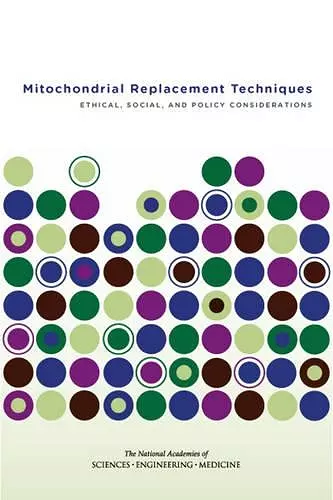Mitochondrial Replacement Techniques
Ethical, Social, and Policy Considerations
Institute of Medicine author Board on Health Sciences Policy author National Academies of Sciences, Engineering, and Medicine author Committee on the Ethical and Social Policy Considerations of Novel Techniques for Prevention of Maternal Transmission of Mitochondrial DNA Diseases author Jeffrey Kahn editor Rebecca English editor Anne Claiborne editor
Format:Paperback
Publisher:National Academies Press
Published:17th Apr '16
Currently unavailable, and unfortunately no date known when it will be back

Mitochondrial replacement techniques (MRTs) are designed to prevent the transmission of mitochondrial DNA (mtDNA) diseases from mother to child. While MRTs, if effective, could satisfy a desire of women seeking to have a genetically related child without the risk of passing on mtDNA disease, the technique raises significant ethical and social issues. It would create offspring who have genetic material from two women, something never sanctioned in humans, and would create mitochondrial changes that could be heritable (in female offspring), and therefore passed on in perpetuity. The manipulation would be performed on eggs or embryos, would affect every cell of the resulting individual, and once carried out this genetic manipulation is not reversible.
Mitochondrial Replacement Techniques considers the implications of manipulating mitochondrial content both in children born to women as a result of participating in these studies and in descendants of any female offspring. This study examines the ethical and social issues related to MRTs, outlines principles that would provide a framework and foundation for oversight of MRTs, and develops recommendations to inform the Food and Drug Administration's consideration of investigational new drug applications.
Table of Contents- Front Matter
- Summary
- 1 Introduction
- 2 Science and Policy Context
- 3 Do Ethical, Social, and Policy Considerations Preclude MRT?
- 4 Regulation and Oversight of MRT in Humans
- Appendix A: Study Approach
- Appendix B: Summary of MRT Research
- Appendix C: Biosketches of Committee Members <
ISBN: 9780309388702
Dimensions: unknown
Weight: unknown
200 pages